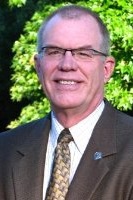One Southern White Man's Perspective on Racial Equity
Hello Allies,
As a young nonprofit executive, I was recruited by an inner-city ministry in Detroit, Michigan. I traveled north from Tennessee to visit with them for a few days.
As part of the interview process, I spent some time with staff members, answering their questions. Toward the end of the session, an employee about halfway back in the room stood up. She was a middle-aged African American lady who spoke quite distinctly and had an engaging smile. Her question began with an explanation. She described Detroit as being completely different than where I had lived in the south. African Americans were a large percentage of the population. There were significant cultural differences.
She was nice and polite, but she wondered whether a white boy from the deep south could do well in this job in Detroit. Her concerns were valid and needed to be expressed.
She asked, “How are you going to handle that?”
I considered myself progressive on matters of race and believed I lived my life in accordance with the values of equality. But my efforts to create equality focused on what I would not do.
My progressive ideas were mostly a list of “thou shalt not” practices: don’t use the “N” word, don’t make racial jokes, don’t mistreat people who are black. They were also almost entirely focused on my personal behavior.
I imagine that my limited ideas about race and equality were rooted in the little slice of the world that I had grown up in, a subset of the larger world, where there weren’t many relationships with African Americans.
I played sports and had teammates who were black, but we only related to each other around our sports. I lived in a white culture that believed in the separation of the races.
My dad started a private, all-white “Christian School” during school integration. We practiced separate but not equal while singing “Jesus loves the little children, all the children of the world…. Red and yellow, black and white, all are precious in His sight.” And we never used the “N” word.
Over the years I developed relationships with many African Americans, and I began to hear their experiences and perspectives. I have also had the privilege of listening to experts on matters of equity. I have realized through these opportunities that:
- I am particularly privileged as a white male.
- If we open our eyes, we can clearly see that people of color have an uphill journey in our culture and that it is filled with perils.
- It is not enough to have a list of “do nots”. I must be intentional about making the path for those who are different from me more level, about helping to remove the treacherous parts.
But it is clear to me that I do not know all I need to know.
I must continue to listen to friends, colleagues and subject experts on matters of equity.
I cannot come up with all the right ideas myself. But if we listen, I believe that we – that I -- can work with others to make the world a better place for all of us.
If I was confronted with the same question today as I was in Detroit many years ago, I would answer this way:
“I am my father’s son. I can never be anything other than that. I cannot know all I need to know to manage the demands of a racially diverse world. I will make mistakes along the way. I will sometimes speak inappropriately, without understanding that I have. I will take the wrong path sometimes.
"But here is what I promise you: I will put myself in a position to listen to and learn from friends, colleagues, and subject experts, and I will actively attend to their messages, and strive to learn.
"Together we will come up with the actions we can take to build a better world. My intention is for all of us to be seen as God sees us - equal in value and full of promise. When people or organizations think like that, good things can happen.”
I am really proud to be a part of Habitat, where one of our guiding principles is to practice diversity and inclusivity.
I am also proud to serve on the Together SC Board as we work alongside our members and Allies to advance racial equity in our state.
I see us getting better.
Let’s keep listening to each other, and we will get better still.

Look for me at the Summit if you'd like to talk.
Monroe
Monroe Free
Together SC Board Member
President & CEO, Habitat for Humanity of Greenville County
C 864.640.5031
P.S. I did not take the job. When they told me how high the snow piled up, I headed back south.
Watch "Removing Our Blinders: How We Can Make Racism A Solvable Problem", hosted by MonroeSeptember 3, 2020
